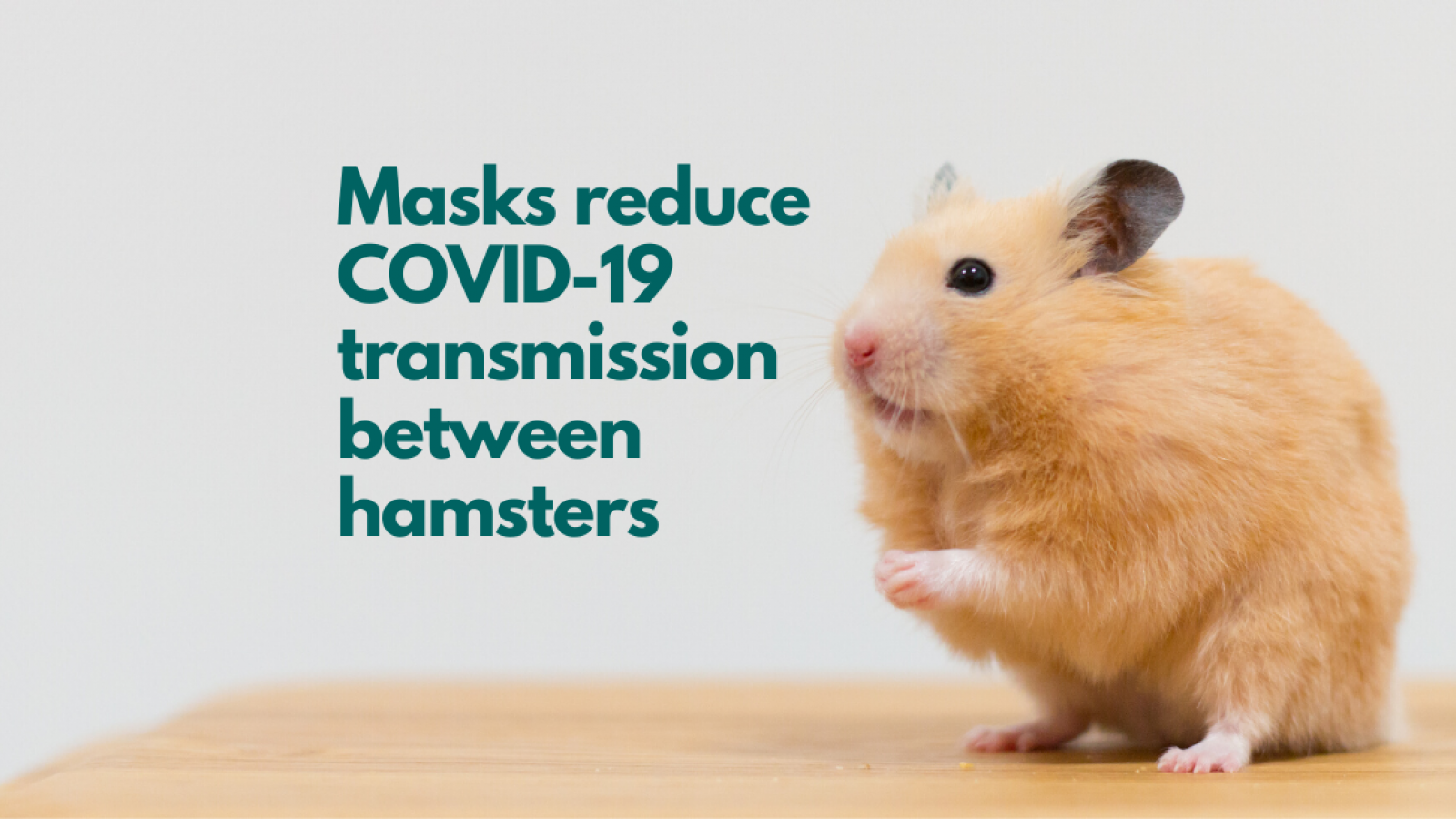COVID-19 & animal research : Study in hamsters shows masks reduce transmission risk
Hamsters are naturally susceptible to SARS-CoV-2 and reveal that widespread use of face masks reduces transmission of the deadly coronavirus
15 years ago, researchers showed that the Syrian hamster could be easily infected with the SARS-CoV-1 coronavirus, vector of SARS, a cousin of COVID-19. Recently tested against SARS-CoV-2, rodents also show susceptibility to this disease.
After infection, hamsters seem to lose weight, develop rapid, irregular breathing and become lethargic. They no longer care for their fur by grooming and are hunched over. SARS-CoV-2 can be found in large quantities in the lungs and intestines of the animals. These clinical manifestations are reminiscent of upper and lower respiratory infection in humans.
In light of these clinical evaluations, researchers from the University of Hong Kong have looked into hamsters to study the effectiveness of masks in blocking disease transmission.
This research is some of the first to specifically investigate whether masks can stop symptomatic and asymptomatic COVID-19 carriers from infecting others.
The team placed hamsters that were artificially infected with the disease next to healthy animals. Surgical masks (level 1) were placed between the two cages with air flow travelling from the infected animals to the healthy ones.
The use of masks in such a way, reduced non-contact transmission of the virus by more than 60% whereas two thirds of the healthy hamsters got infected within a week when no masks were used.
Placing the mask over the cage with the infected hamsters seem to show a greater effect as infection rates were just over 15% compared to 35% when the masks were put on the cages of the heathy hamsters.
And overall, placing a mask reduced the viral load in the hamsters that did get infected, as they were found to have less virus within their bodies than those infected without a mask.
The study seems to argue in favour of wearing masks for the infected, both symptomatic and asymptomatic, and the healthy.
Last edited: 28 July 2022 16:13




